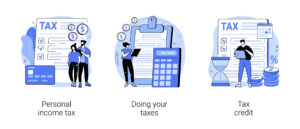Are You Using Your Yacht as a Tax Deduction?

Are You Using Your Yacht as a Tax Deduction?
Tax Deductions
Who doesn’t like spending time out on the open waters enjoying all the many luxuries that yachts have to offer? While most people only dream of owning a yacht, for many of the world’s ultra-wealthy having a yacht is like having a second car: it’s a standard more than a luxury. However, although yacht owners are in different ways to reduce taxable income class than most, that doesn’t mean that purchasing and owning a yacht tax deduction is cheap. In fact, it is quite expensive. The good news is, you can actually lower the cost of owning a yacht significantly if you play your cards right.
Chartering Your Yacht
As many yacht owners know, it just takes a little prudence to make your yacht work for you. The first thing you need to do is place your yacht in charter. That doesn’t mean you have to put in some foreign charter company, where you will rarely have the chance to use it. You can actually place it in a local charter company in a location that is convenient for you. By chartering your yacht, essentially, you are allowing a charter company to charter, or rent your vessel to other sailors by the day or week. It’s similar to owning a vacation home and renting it out most of the year. So, in essence, you are turning your yacht into a business.
Tax-Saving Implications
When you decide to use your yacht as a business you are eligible for several tax management, savings, which are basically the same benefits that business owners get when they buy equipment for their business. When your yacht is placed into charter it becomes a business asset and is no longer considered a personal asset. Many yacht owners are actually able to reduce the cost of buying and owning a yacht by more than half. That is a significant saving, and you still get to enjoy the yacht for personal use as well. There are several others to pay less taxes implications that also exist, including:
Being able to take a one-time maximum deduction of up to $500,000 of the purchase price of the yacht in the year that you buy it, according to Section 179 of the Internal Revenue Code. If the purchase price exceeds $2,000,000, the benefit is reduced.
A bonus depreciation deduction of half of the purchase price over $500,000 during the year of purchase.
Being able to depreciate the adjusted cost basis of your yacht – which is the balance of the purchase price after the Section 179 expense deduction and the 50% bonus depreciation deduction – over 10 years.
Deducting against how to reduce taxable income and other employment income, as well as typical charter related expenses including insurance, slip fees, loan interest, repairs and property tax return, deduction, etc.
More income from chartering your yacht, which will vary depending on your yacht’s size and the charter company you select.
Contact GROCO for Tax Savings
Of course, if you are considering placing your yacht in the charter for tax rates 2020 purposes, then you should first consult with a certified tax accountant. At GROCO we can help answer all your tax questions regarding purchasing and owning a yacht and placing it in the charter. Please contact us today at 1-877-CPA-2006 or click here to connect with us online.
We hope you found this article about “Are You Using Your Yacht as a Tax Deduction?” helpful. If you have questions or need expert tax or family office advice that’s refreshingly objective (we never sell investments), please contact us or visit our Family office page or our website at www.GROCO.com. Unfortunately, we no longer give advice to other tax professionals gratis.
To receive our free newsletter, contact us here.
Subscribe to our YouTube Channel for more updates.

Alan Olsen, is the Host of the American Dreams Show and the Managing Partner of GROCO.com. GROCO is a premier family office and tax advisory firm located in the San Francisco Bay area serving clients all over the world.
Alan L. Olsen, CPA, Wikipedia Bio

GROCO.com is a proud sponsor of The American Dreams Show.

The American Dreams show was the brainchild of Alan Olsen, CPA, MBA. It was originally created to fill a specific need; often inexperienced entrepreneurs lacked basic information about raising capital and how to successfully start a business.
Alan sincerely wanted to respond to the many requests from aspiring entrepreneurs asking for the information and introductions they needed. But he had to find a way to help in which his venture capital clients and friends would not mind.
The American Dreams show became the solution, first as a radio show and now with YouTube videos as well. Always respectful of interview guest’s time, he’s able to give access to individuals information and inspiration previously inaccessible to the first-time entrepreneurs who need it most.
They can listen to venture capitalists and successful business people explain first-hand, how they got to where they are, how to start a company, how to overcome challenges, how they see the future evolving, opportunities, work-life balance and so much more..
American Dreams discusses many topics from some of the world’s most successful individuals about their secrets to life’s success. Topics from guest have included:
Creating purpose in life / Building a foundation for their life / Solving problems / Finding fulfillment through philanthropy and service / Becoming self-reliant / Enhancing effective leadership / Balancing family and work…

MyPaths.com (Also sponsored by GROCO) provides free access to content and world-class entrepreneurs, influencers and thought leaders’ personal success stories. To help you find your path in life to true, sustainable success & happiness. It’s mission statement:
In an increasingly complex and difficult world, we hope to help you find your personal path in life and build a strong foundation by learning how others found success and happiness. True and sustainable success and happiness are different for each one of us but possible, often despite significant challenges.
Our mission at MyPaths.com is to provide resources and firsthand accounts of how others found their paths in life, so you can do the same.
IRS Notice 2009-62 Issued 8/7/09
IRS Notice 2009-62 Issued 8/7/09 The due date for reporting the existence of Offshore Bank Accounts on Treasury Department Form TD F 90-22.1 has been an issue of great confusion in the last few months. Form TD F 90-22.1 is known as Foreign Bank Account Reporting (AKA “FBAR”) For a complete review of this soap…
Income the IRS Can’t Touch
Income the IRS Can’t Touch There’s one readily available and legal source of untaxed income that we know of: municipal bonds. These securities are issued by state and local governments, school districts, hospitals and other public agencies to support community projects and services. To permit these worthy endeavors to raise money economically, Uncle Sam exempts…
Avoiding Real Estate Tax Revaluations
Avoiding Real Estate Tax Revaluations by Steven Singer, CPA As a result of the passage of Proposition 13 almost thirty years ago, real estate owners currently enjoy paying property taxes based on the property’s purchase price, value of improvements and an annual increase of 2% over the previous years’ assessed value. As a result of…
Annuities in Qualified Retirement Plans
Annuities in Qualified Retirement Plans By Russell Hill Using annuities in qualified retirement plans. Qualified annuities reduce your current taxable salary in addition to accumulating tax deferred earnings, when you contribute money to an annuities program through an employer (as one of the investment options in a salary reduction retirement plan). Those who work for…


